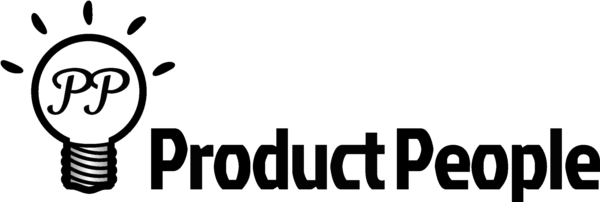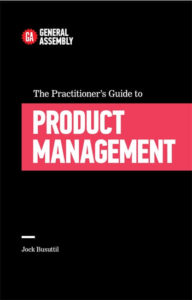
PRODUCTHEAD: Don’t wait. Just find out.
PRODUCTHEAD is a regular newsletter of product management goodness,
curated by Jock Busuttil.
product order #
every PRODUCTHEAD edition is online for you to refer back to
tl;dr
When designing an experiment to test a hypothesis, ask how might it fail, and what you need to find out
Luck and uncertainty mean that even good decisions can have a bad outcome (and vice versa)
Framing our beliefs with a confidence percentage makes us more willing to accept contradictory evidence
hello
One of the recurring themes from my chats this week has been about just getting on and doing something. In the context of creating products in an inherently uncertain environment, it’s been about bringing forward your learning.
Waiting means we don’t get to benefit from knowing earlier in the process. Waiting means the decisions we take now are less informed than they could be. Waiting means it’s usually harder and more expensive to change course once we do find out.
Just getting on and finding stuff out now is far preferable to waiting and hoping the answer will shake out later by itself.
You may be afraid that something isn’t going to work, so you put off finding out. If it was never going to work, why wait to find out? The longer you put off determining the outcome for sure, the more time you waste considering an option that was never going to work. Instead, you could be devoting that time to a more credible option.
‘Finding out’ can apply both to learning how to use a technique, as well as what you use that technique to learn. First get used to the technique, then get used to learning with the technique.
Sometimes people are so apprehensive about doing something seemingly as straightforward as (for example) having a chat with their product’s users that the first step is just to get them comfortable chatting, full stop. Only then can they start interviewing to learn something specific.
Don’t wait. Just find out. It might not be your best work, but it will move you forward.
In this week’s PRODUCTHEAD, Jeff Gothelf takes ten minutes to walk you through designing a quick experiment to learn something. Simple, practical, helpful.
I’m also currently reading Annie Duke’s excellent book, Thinking In Bets, and so far two of her observations have stood out to me in particular:
1. We often retrospectively determine whether a decision was good or bad depending on its outcome. We also know that a well-informed, thoughtful decision can still have a poor outcome; likewise a shot in the dark can occasionally have a fluke lucky outcome.
A bad outcome doesn’t mean that the decision was flawed, nor does a good outcome mean the decision was informed and thoughtful. While it’s important to be as thoughtful and well-informed as we can when taking a decision, luck also plays a part on determining the outcome.
2. Duke writes that we form beliefs in three stages: hear/read something; believe it to be true immediately; then only later interrogate why we think it’s true. We then resist new information that contradicts our beliefs because it is cognitively hard to accept we had it wrong.
Instead Duke suggests we reframe our beliefs (or assumptions) as bets with an associated probability (“I’m pretty sure about that, maybe 80 percent confident”), rather than the binary true/untrue framing. Shifting away from absolutes makes it easier for us to interrogate our beliefs and to assess what evidence we have that informs that belief.
I’ve found those insights helpful — I hope you do also.
Speak to you soon,
Jock
The link to Annie’s book is an Amazon affiliate link, meaning I would earn a small commission on any purchases you made.
what to think about this week
How to design lightweight experiments
The video walks through a hypothetical example that shows the thought process from business problem to solution hypothesis to lightweight experiments. Along the way we think through the biggest risks to the hypothesis, what we need to learn about them and how we might go about learning those things in 3 time horizons.
How would we test in one day / week / month?
[Jeff Gothelf]
Thinking In Bets
During the last half of my 20 years in poker, I developed a pair of mirror-image careers: using my behavioral science approach to teach groups of developing players about poker strategy, and using my poker background to teach business and professional groups about decision-making strategy.
Better decision-making when you don’t have all the facts
[Annie Duke]
recent posts
Getting your first job as a product manager
Job adverts present a chicken-and-egg problem: they all need you to have product management experience to secure a job, but you don’t yet have a product management job to gain that experience.
Don’t let this discourage you!
Practical tips for breaking into a career in product management
[I Manage Products]
Force multipliers
Recently I was explaining to a client why I focus my efforts on finding “force multipliers”. These are what I call activities that allow us to extract multiple benefits from a single piece of work. You could think of it a little like a workplace fusion reaction, where the output ends up far greater than the input effort.
Getting more out than you put in
[I Manage Products]
How to sharpen up your vision and strategy
When the vision and strategy are focused and clear, they allow product managers to prioritise and filter the possible options for their products more easily.
Use these straightforward questions and worked examples
[I Manage Products]
can we help you?
Product People is a product management services company. We can help you through consultancy, training and coaching. Just contact us if you need our help!
Helping people build better products, more successfully, since 2012.
PRODUCTHEAD is a newsletter for product people of all varieties, and is lovingly crafted from lovely, smooth, rounded corners.


Leave a Reply